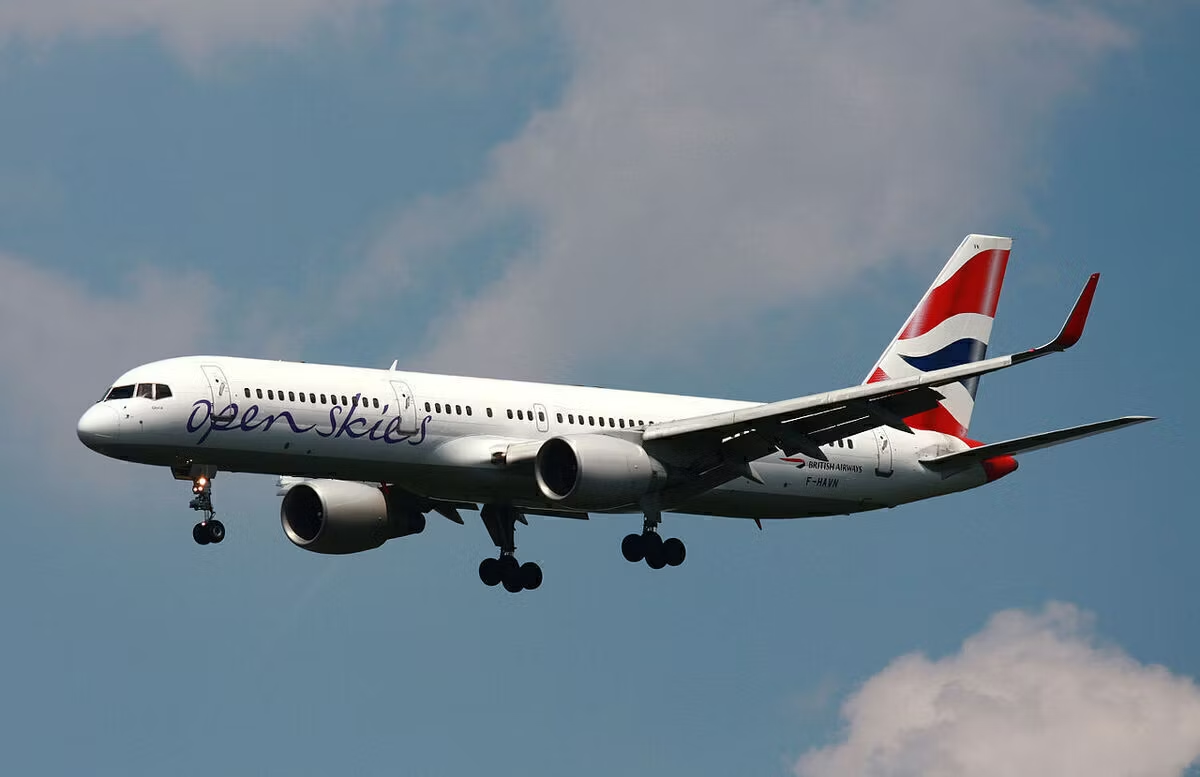The recent announcement by the office of the President of the Federal Republic of Nigeria regarding the establishment of a dedicated Ministry of Tourism marks a significant milestone in the country's journey towards harnessing the full potential of its tourism sector.

This move underscores the administration's unwavering commitment to recognizing tourism as a vital catalyst for Nigeria's economic growth and the overall development of the industry.
Fostering Domestic Tourism for a Thriving Industry
This strategic focus is driven by the understanding that a robust domestic tourism sector not only strengthens Nigeria's appeal to external sponsors and investors but also acts as a catalyst for infrastructural development, thereby unlocking the vast potential within the tourism industry.
By encouraging Nigerian citizens to explore their own country, the government can create a sense of pride and appreciation for the nation's cultural, historical, and natural treasures. This not only stimulates economic activity within the country but also enhances the overall tourism experience for international visitors.
Opportunities for Growth Post-COVID
Nigeria's tourism sector is at a juncture poised for growth, marked by a resurgence in demand for Nigerian tourism that is gradually approaching pre-COVID levels. The recovery of the global tourism industry and Africa's impressive rebound offer significant opportunities for domestic growth.
The fact that demand for Nigerian tourism is rebounding is a positive sign, given the challenges posed by the COVID-19 pandemic. It indicates that there is enduring interest in Nigeria as a tourist destination, and this interest is now being revitalized as travel restrictions are eased and international travelers regain confidence.
Infrastructure Investment and Public-Private Partnerships
Developing and maintaining world-class infrastructure not only enhances the overall visitor experience but also ensures that Nigeria can compete effectively in the global tourism market.
- Infrastructure Development
Improvements in infrastructure encompass various aspects, including road networks, airports, and ports. Good transportation infrastructure ensures that tourists can easily access different regions of Nigeria, promoting the exploration of diverse attractions.
- Accommodation Facilities
A range of accommodation options, from budget to luxury, is essential to cater to the diverse preferences of tourists. Investments in hotels, lodges, resorts, and short-term rentals are needed to accommodate both domestic and international visitors.
- Tourist Facilities
Enhancing tourist facilities such as visitor centers, museums, and recreational areas can elevate the overall experience for travelers. These facilities provide valuable insights into Nigeria's culture, history, and natural wonders.
- Safety and Security
Ensuring the safety and security of tourists is paramount. Investments in security measures, including well-trained personnel, surveillance systems, and emergency response infrastructure, contribute to a positive perception of Nigeria as a safe destination.
Leveraging the Open Skies Agreement for Tourism
The Open Skies Agreement offers a transformative opportunity for Nigeria's tourism industry. This agreement removes restrictions on air travel, fostering greater connectivity and accessibility for both domestic and international tourists.

- Enhanced Connectivity
The removal of restrictive air travel regulations facilitates easier and more affordable access to Nigeria. This increased connectivity encourages international tourists to explore Nigeria's diverse destinations, from bustling cities to remote natural wonders.
- Attracting International Airlines
With fewer barriers to entry, international airlines are more likely to operate routes to Nigeria, expanding the range of options for travelers. Increased competition can also lead to lower airfares, making Nigeria a more attractive destination.
- Streamlined Visa Processes
The Open Skies Agreement can prompt improvements in visa processes, simplifying entry requirements for tourists. Streamlined visa procedures reduce friction for international travelers, encouraging more visits to Nigeria.
- Boosting Tourism Numbers
Improved air transport infrastructure and connectivity contribute to higher tourist arrivals, providing a significant boost to the tourism industry. This, in turn, generates revenue, creates jobs, and stimulates economic growth.
Strategic Initiatives for Tourism Growth
To catalyze tourism growth in Nigeria, a series of strategic initiatives are proposed:
- National Tourism Development Master Plan
The establishment of a comprehensive master plan aligned with the National Development Plan is essential. This plan should encompass long-term goals, strategies, and actionable steps to guide the sustainable growth of the tourism sector.
- Tourism Satellite Account (TSA)
Implementing the TSA is crucial for capturing tourism-related data, which is vital for coordinated planning and development. The TSA provides valuable insights into the economic impact of tourism and informs policymaking.
- Constitutional Placement of Tourism Responsibilities
Engaging with the National Assembly to clarify and solidify tourism's role in the federal constitution ensures that it receives the necessary attention and support from all tiers of government. This step eliminates ambiguity and promotes coordinated efforts.
- Harnessing the Open Skies Agreement
Maximizing the advantages of the Open Skies Agreement, as part of the AfCFTA, is crucial. This involves actively promoting Nigeria as a tourist destination in international markets and capitalizing
on the increased connectivity it offers.
These strategic initiatives create a roadmap for sustainable tourism growth, setting clear objectives and facilitating the coordination of efforts among stakeholders in the public and private sectors.
Capacity Development for Tourism
Collaborations with stakeholders and educational institutions are key to providing the necessary skills and training to personnel, fostering professionalism within the sector.
Enhancing skills in the tourism sector involves offering specialized training programs for both young and mature Nigerians, emphasizing practical, vocational skills pertinent to tourism, hospitality, and service industries.
Vocational training addresses immediate workforce requirements, while public-private partnerships can establish educational institutions aligned with industry standards. Encouraging lifelong learning within the tourism field ensures personnel stay current with evolving trends and technologies, supporting ongoing professional development and industry growth.
New Regional Leadership for Tourism
Nigeria's recent election and appointment in international tourism organizations mark a pivotal moment for its tourism sector. These roles offer enhanced visibility, enabling Nigeria to showcase its cultural heritage and attractions globally.
As a regional leader, Nigeria can influence tourism policies and foster cooperation for sustainable growth. Moreover, the positions open doors to global partnerships, facilitating joint campaigns and investments in the country's tourism sector. Nigeria's newfound prominence positions it as a compelling and diverse destination on the global tourism stage.
Harnessing the Power of Brand Africa
Leveraging Brand Africa, Nigeria positions itself as a gateway to Africa's rich and diverse experiences, appealing to global travelers seeking cultural immersion, authenticity, and transformation.
This branding strategy dispels misconceptions, highlighting Nigeria's positive aspects, warm hospitality, and captivating landscapes, reassuring potential visitors about safety and enjoyment.
It creates a distinct identity that resonates with travelers seeking immersive and culturally meaningful experiences, aligning with global travel trends.
Collaborative Marketing and Promotion
Collaborative marketing is vital for boosting Nigeria's tourism sector:
- International Collaborations: Partnering with other countries and organizations for joint marketing campaigns enhances Nigeria's appeal globally.
- Neighboring Countries: Strengthening tourism ties with neighboring nations encourages regional exploration, fostering regional growth and diplomatic relations.
- International Events: Active participation in global tourism events and expos raises Nigeria's visibility and attracts potential tourists.
- Digital Outreach: Leveraging online platforms like social media and travel apps is crucial for reaching a broader audience and inspiring travel to Nigeria.
Collaborative efforts expand Nigeria's tourism reach, showcasing its unique attractions and rich culture to a global audience.
FAQS
What recent development in Nigerian tourism is this article discussing?
The article discusses the recent creation of a dedicated Ministry of Tourism in Nigeria and the appointment of Ms. Lola Ade John as the Minister. This development signifies the Nigerian government's commitment to recognizing tourism as a key driver of economic growth and industry development.
Who is Ms. Lola Ade John, and why is her appointment significant for the tourism sector?
Ms. Lola Ade John is a professional with expertise in the information and disruptive technology space. Her appointment as the Minister of Tourism is significant because it brings someone with relevant experience into a position crucial for advancing the tourism industry.
What is the current state of the tourism industry in Africa compared to the global market?
Africa accounts for only 4% of the global tourism market, indicating significant untapped potential for growth in the continent's tourism industry.
Why is there an emphasis on developing domestic tourism in Nigeria?
Developing domestic tourism is seen as a crucial step in making Nigeria a tourism hub in Africa. It not only increases the country's appeal to sponsors and investors but also leads to infrastructural development, unlocking the sector's potential.
How has the tourism industry in Nigeria been affected by the COVID-19 pandemic?
The demand for Nigerian tourism is strengthening and approaching pre-COVID levels. In 2019, international tourist arrivals in Nigeria accounted for over 2.2 million people, with receipts exceeding $1.4 billion. Africa has also shown strong post-COVID recovery, with tourism bouncing back by as much as 88%.
What are some key challenges that need to be addressed for Nigeria to realize its tourism potential?
Challenges include the need for infrastructure development, improved transportation networks, accommodations, tourist facilities, safety and security measures, and proactive risk management strategies to build trust and confidence among tourists.